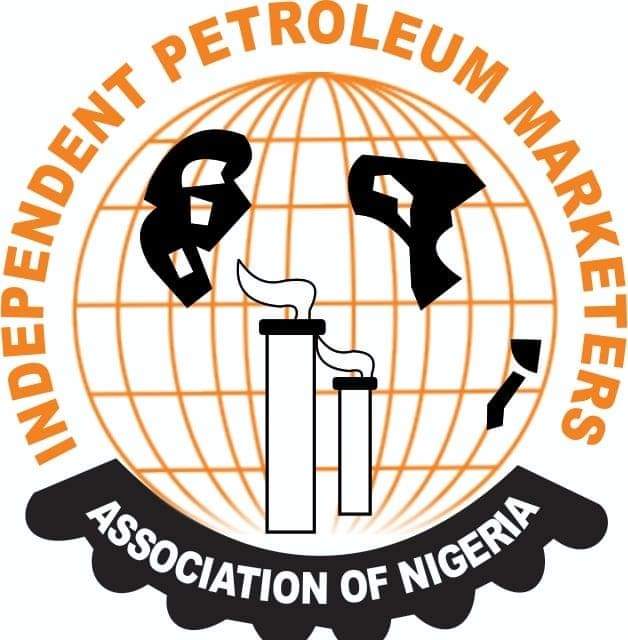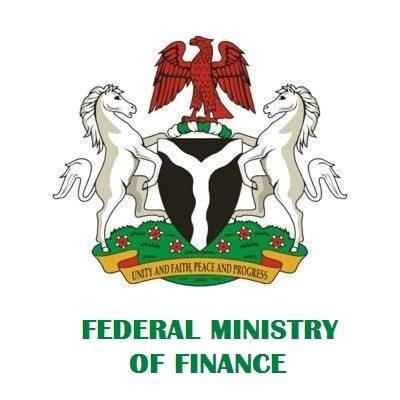Business
Access, First Bank , others begin PTA/BTA disbursement with dollar cards
Deposit Money Banks (DMBs) operating in the country are set to stop further cash disbursements of foreign exchange for personal travel allowance and business travel allowance (PTA/BTA) as a means of stabilising the value of the Naira.These will now only be disbursed via a dollar travel card.
Access Bank and First Bank of Nigeria have said they will stop disbursing foreign exchange in cash as disbursement for PTA, BTA and other foreign exchange purchases.
The banks made this known in emailed notes to their customers, although some others have commenced disbursements through travel cards only in an effort to reduce the demand for cash and check customers who capitalise on the arbitrage.
FirstBank in a statement to its customers stated, “The full Personal Travel Allowance (PTA) and Business Travel Allowance (BTA) of $4,000 and $5,000 respectively will now be disbursed into your FirstBank Travel Card. All applications will be in line with regulatory requirements. Kindly ensure that all PTA/BTA applications along with the approved Form A are submitted at the branch exactly 14 days before your proposed travel date. Sales is limited to two quarters a year.”
For school fees it noted that a minimum of 30 days is required for processing, after the submission of documents along with the approved Form A at the branch, subject to a maximum of $15,000 per semester and limited to two semesters per session.
For students’ upkeep, it stated, “Application for upkeep requires a minimum of 30 days for processing subject to a maximum of $3,000 (or its equivalent in other currencies) per semester, limited to 2 semesters per session. Evidence of payment of school fees for the current session, if school fee was not paid through FirstBank, will also be required.”
Access Bank on its part stated that, “We would like to once again inform you that we disburse authorised personal and business travel allowance FX requests through our Access Travel Debit Card. The Access Travel Debit Card has been created to enable you to transact seamlessly when you travel abroad.”
It added that, with this process, “customers can get instant issuance for PTA/BTA requests, easy access to international transactions via online, POS, and ATM and that the card is valid for three years and is usable for current and future PTA/BTA requests during its validity.”
However, one of the questions some Nigerians and business operators that have been affected by the continued exchange rate crisis are asking is: can travel allowance on debit cards curb FX pressure?
“This will not address the pressure but only serve as a control to monitor disbursement and usage,” said Ayodeji Ebo, managing Director/Chief business officer at Optimus by Afrinvest.
He said to reduce pressure, supply needs to increase significantly but the CBN is constrained due to the declining FX inflow from oil.
Taiwo Oyedele, head of tax and corporate advisory services at PwC, described the introduction of travel debit cards for the disbursement of PTA/BTA as a welcome development that could serve as a form of control to stem the abuse by those who are exploiting the system.
“I expect that an artificial intelligence mechanism will be built into the cards to ensure that travellers utilise their PTA/BTA in a manner that is consistent with their applications such as their travel destination,” he said.
According to him, the spending pattern can be analysed using big data to inform necessary policy changes in addition to enforcing the policy of returning unspent PTA/BTA to the CBN which has so far been difficult to implement.
“Overall this should have a positive impact in preserving our external reserve and improve the availability of forex for legitimate demands in the official windows. It may however result in further depreciation of the Naira in the parallel market in the short term as some of these illegal supply sources are cut off,” Oyedele said.
A traveller who has used the travel credit card shared his experience: “The card was loaded with dollars. It can lead to loss of money like in my case where the trip was to South Africa and their currency is rand. When I withdrew from the ATM, it was converted at a certain rate and that was where I started losing money.
“They impose other charges for making that withdrawal too. And there are also limits to how much you can get at a time daily, so the more transactions you carry out, the more charges you pay and the more money you lose.
“If you have anything unspent and decide to convert back to dollars, you lose again when the conversion is done. The card itself is expensive… They don’t tell you they will deduct the money for it until later, and that costs 10 or 13$.”
Another traveller who could not access FX said, “I applied for PTA and duly completed the Form A with required documents. I didn’t receive it before I travelled to Bangkok; approaching my bank to engage them, I was told I applied late and many people were still in line.”
Business
NDIC sustains fight against corruption with inauguration of ‘Anti-corruption & transparency unit’


By Seun Ibiyemi
The Nigeria Deposit Insurance Corporation (NDIC) has inaugurated its Anti-corruption & Transparency Unit.
“NDIC has a culture of zero tolerance for corruption, which is further strengthened by its core values of Teamwork, Respect and Fairness, Integrity, Professionalism, and Passion,” said MD/CE, NDIC Mr. Bello Hassan.
He was represented by NDIC Executive Director, Operations Mr. Mustapha M. Ibrahim during the inauguration of the Corporation’s Anti-Corruption and Transparency Unit (ACTU) by officials of the Independent Corrupt Practices and Other Related Offences Commi ssion (ICPC) at the NDIC headquarters in Abuja.
He said, the NDIC ACTU has strengthened the Corporation’s operational system through the implementation of various compliance measures to ensure ethics, integrity, transparency and accountability in the workplace.
He explained that the specific measures include robust Internal Controls, regular Risk Assessments, strict adherence to regulatory guidelines, and comprehensive training programs for employees.
Mr. Hassan described the inauguration as a significant step in the Corporation’s ongoing commitment in the fight against corruption and enhance transparency. He emphasised that NDIC Management remains committed to supporting ACTU activities, recognising the unit’s critical role in ensuring the Corporation’s operations are conducted with integrity, free from corruption, and fostering public trust.
The ICPC Chairman, Dr. Musa Adamu Aliyu who was represented by ICPC Acting Director System Study and Review, Mr. Olusegun Adigun, praised NDIC Management for their dedication and active support in establishing and advancing the activities of the ACTU to address corruption issues and foster ethical practices.
He applauded the efficiency and diligence of the NDIC ACTU in fulfilling its mandate, resulting in the Corporation retaining the first position for two consecutive years on the annual ICPC Ethics and Integrity Compliance Scorecard.
He urged the new ACTU members to see their nomination as an opportunity to build on the good legacies of the previous members and to complement Management’s efforts in promoting the core valu es of the Corporation through their assigned duties.
He stressed the need for the NDIC Management to sustain its commitment and support to ACTU so that the Unit can perform optimally and remain a veritable tool in embedding laid down ethical standards amongst staff and sustaining a positive image for the Corporation.
Ten (10) members of staff were sworn in as members of the NDIC ACTU during the inauguration. Their key functions include annual sensitisation of staff against corruption; Conduct of System Study & Review and Corruption Risk Assessment to strengthen internal systems; monitoring budget implementation of the Corporation, co ordinating whistleblowing platforms, identifying and rewarding outstanding members of staff amongst other responsibilities.
Business
IPMAN hinges erratic petrol availability on allocation issues from NNPC


The Independent Marketers Association of Nigeria (IPMAN) says petrol availability has been erratic because of the small allocation currently allotted to its members by the Nigerian National Petroleum Corporation (NNPC).
IPMAN National Vice-President, Alhaji Hammed Fasola, disclosed this in an interview with journalists in Ibadan on Tuesday.
Fasola said the allocation issue has led to haphazard operations by its members, who now buy from third parties (private depot owners) at prices they can no longer afford.
According to him, NNPC has been the one bringing the product to the country and sharing it with major marketers until the involvement of the private depot owners.
He added that there had been a shortfall in the supply of the product because NNPC would naturally supply its retail outlets first.
“That is why you see a kind of on-and-off situation from the independent marketers’ filling stations.
“We still get some trucks directly, but very inadequate to the number of marketers we have.
“We are waiting for when the product will be available, especially through NNPC depots, the Port Harcourt refinery, and by the time Dangote comes up with its petrol, that is PMS.
“We believe that all these problems will be solved,” he said.
However, he said the association would continue to engage NNPC because it had been a long-term partner.
”We are very positive that when things come to normal, they will be giving us our due allocation,” he said.
On the issue of subsidy, Fasola said he believed there was no more fuel subsidy because the government had said so.
Many filling stations are not selling due to the unavailability of the commodity.
Others, who open for business intermittently, sell between N620 per litre to N700 with NNPC retail outlets selling at the official rate but with long queues.
Business
Finance Ministry launches digital incentives, evaluation platform


By Matthew Denis
In a significant advancement to streamline fiscal management, the Honourable Minister of Finance and the Coordinating Minister of the Economy, Mr Wale Edun has announced the integration of the Incentive Monitoring and Evaluation Platform (IMEP) into the Import Duty Exemption Certificate (IDEC) programme, thereby allowing for enhanced monitoring and evaluation.
This is contained in a statement signed by Mohammed Manga Director, Information & Public Relations of Federal Ministry of Finance and made available to NewsDirect on Tuesday.
“The IDEC programme strategically reduces import duty burdens for priority sectors such as manufacturing, agriculture, and healthcare, stimulating economic growth and national development.”
The statement stressed that integrated into the IDEC framework, the newly launched IMEP ensures that only eligible entities benefit, rigorously enforcing compliance and optimising tax expenditures to reduce waste, block leakages and enhance economic equity.
“Key features of the IMEP include an automated claw-back mechanism for recouping waivers from defaulters, real-time e-report generation and a centralised database that enhances the efficiency of our verification processes.
“IMEP aims to ensure that tax incentives are rationalised to deliver maximum economic impact, aligning with the government’s commitment to reducing waste, blocking leakages, and fostering a robust and equitable economic environment. IMEP’s precise monitoring capabilities will significantly enhance the strategic allocation of exemptions and support the government’s objective to ultimately reduce tax expenditures.”
To acquaint all stakeholders with the upgraded IDEC framework, the Ministry of Finance will host a webinar on April 25th, 2024, by 12 noon (WAT). Key industry participants, including manufacturers, importers, and representatives from MDAs and NGOs, have been invited to engage in this session to understand the enhanced features and benefits of the IMEP. Details for the webinar will be available on the Ministry of Finance’s official website and the IDEC YouTube channel.
-
Finance3 months ago
Court orders Sen. Victor Umeh to repay N136m bank debt to AMCON
-



 Abuja Update2 months ago
Abuja Update2 months agoUNDP, FG partnership needed to achieve inclusion, equity- Minister
-
Abuja Update1 month ago
Banks drive stock market performance with N147bn gain
-



 Infotech3 weeks ago
Infotech3 weeks agoWorld Backup Day: NITDA urges Nigerians to ensure backup of data
-
capital market2 years ago
Rt.briscoe, FBNH, Others halts negative performance of stock market
-



 Health3 weeks ago
Health3 weeks agoImmunisation: FG, GAVI seek synergy with Sokoto Govt.
-
Infotech2 weeks ago
Forex for Beginners: Unveiling the currency exchange and how to trade it
-
Submission Guidelines4 months ago
CALL FOR SUBMISSIONS: POETRY COLUMN-NND








